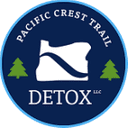Self-medication has become increasingly common in recent years. The World Health Organization defines self-medication as “the use of drugs to treat self-diagnosed disorders or symptoms.”
Self-medication, however, can be risky and result in several issues as well as poor health. Taking the wrong medication or making an inaccurate self-diagnosis are two possible risks associated with self-medication.
Misuse of medications or inappropriate dosage can sometimes result in harmful drug interactions. Here, we’ll discuss the dangers of self-medication, why it is important to see a licensed healthcare practitioner when you feel distress or discomfort, and what you can do instead.
 Source: Pacific Crest Trail Detox
Source: Pacific Crest Trail Detox
The Appeal of Self-Medication
Self-medication is a concern that calls for attention. But why is it that people self-medicate in the first place? The causes of self-medication vary widely, so let’s explore.
Daily life struggles can be challenging. Each person copes differently, but with every tough situation, we may feel more compelled to find outlets, whether healthy or unhealthy. People tend to self-medicate for two reasons.
First, substances can temporarily make the symptoms of a distressing experience, such as a mental health condition or a physical illness, more manageable. Second, people who use substances and self-medicate cannot find other ways to cope with their feelings or the co-occurring health condition.
For example, it might be appealing to do a detox at home to alleviate any unpleasant symptoms, such as pain. However, the benefits of professional detox far outweigh the positive outcomes of self-medicating and detoxing at home.
Risks of Incorrect Diagnosis
There are also risks for incorrect diagnosis when one self-medicates and self-diagnoses. Self-diagnosis happens when an individual identifies a medical condition that is affecting them.
They do this by doing internet research, studying medical libraries, and looking at anecdotal evidence and personal experiences. Due to biases, external influences, and a lack of accuracy, self-diagnosis can be very dangerous.
This means that people diagnose themselves without seeing a licensed professional, which often results in an incorrect diagnosis. The corresponding treatment would then be inappropriate, which can result in no changes or even a worsening of symptoms.
Additionally, it could cause delayed recovery, undue stress, anxiety, additional pain, and other complications. While self-diagnosis can be validating for a person who is struggling, it can also lead to exaggerated symptoms and overlooking the root cause of the problem. Incorrect self-diagnosis can also delay discovering the real issue and getting the necessary treatment.
 Source:
Pexels.com
Source:
Pexels.com
Potential for Drug Interactions
When healthcare professionals such as doctors prescribe medication, they ensure that your treatment will react safely with other medications that you take. However, self-medication often uses a combination of treatments or medications to alleviate certain conditions without expert knowledge. This is not advisable since combining medicines without the appropriate medical background and expertise can result in adverse drug interactions. The most common example is using painkillers with alcohol, which can cause immediate dangers.
Furthermore, studies have found that self-medication is associated with a higher risk of drug-related problems, especially when compared to people who did not self-medicate. This means that self-medication could be more harmful in the long term, and any benefits it may have in the short term are short-lived and temporary.
The Danger of Overdose and Addiction
 Source: Pacific Crest Trail Detox
Source: Pacific Crest Trail Detox
Since self-medication involves the risk of incorrect diagnosis, it is probable that people who self-medicate may end up taking incorrect dosages. Lower amounts than usually prescribed may be less effective and not provide proper relief and symptom management.
On the other hand, taking too much medication could increase the risk of a potential overdose, which can be extremely dangerous and life-threatening. Inaccurate doses can also increase the probability of experiencing side effects.
Mental health issues, in particular, are susceptible to the negative effects of self-medication. Over time, self-medicating can further complicate the treatment of mental health conditions and contribute to the development of a substance use disorder.
For instance, cocaine use has been found to exacerbate symptoms and lead to the worsened progression of bipolar disorder. Excessive consumption of substances, especially highly addictive ones, can potentially lead to dependency and eventual addiction.
Though it is possible to treat (such as when one overcomes a benzodiazepine addiction through tapering), it is often quite difficult to do so, especially without the help of a medical professional.
Importance of a Healthcare Professional
Healthcare professionals play a vital role in ensuring our well-being. Primary care physicians (PCP) help people manage their health, and they are usually the first healthcare professionals that individuals can consult for health issues or medical problems. This includes self-medication, particularly because it can lead to the worsening of symptoms and even lead to dependency and addiction.
Healthcare professionals accurately assess and diagnose a patient’s condition before prescribing the correct medication at an appropriate dose. They help monitor your symptoms over time and adjust your treatment accordingly to ensure relief and eventual recovery. People who are experiencing pain, discomfort, or other symptoms must consult with a healthcare professional rather than self-medicating.
 Source:
Pexels.com
Source:
Pexels.com
The Bottom Line
Becoming more aware of the dangers of self-medication can improve your overall health. By understanding the importance of seeing a healthcare professional rather than doing guesswork in self-treatment, you can ensure that you get the proper treatment.
Self-medication and treatment may seem like a natural response for when we are feeling unwell, whether physically or psychologically. However, self-medicating carries with it several risks, including negative drug interactions, the worsening of symptoms, and even drug dependency.
Finding the right place for addiction treatment in Oregon doesn’t have to be part of the challenge. Whether you are looking for a detox program or substance abuse counseling, Pacific Crest Trail Detox is here for you.
